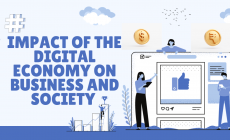-
UNION INTERIM BUDGET 2024-25 -
-
Are cryptocurrencies the future of the digital world economy -
-
Breaking Waves, Breaking News: Lakshadweep’s Recent Developments Explored -
-
The Impact of the Digital Economy on Business and Society -
-
Augmented Marketing: A Comprehensive Guide -
-
How To Strengthen Your Email Marketing Using AI -
-
How Artificial Intelligence and Digitization Are Transforming Our Lives -
-
What Data Science Tools do the Experts Recommend? -
-
Robotic Process Automation Will Transform Your Business? Check Here! -
-
Edge Computing: How it is Reshaping Cloud Infrastructure -
UNSW student’s pioneering artificial intelligence boosts IVF success
Mumbai: A problem first posed in a UNSW lecture has driven a current Medicine student to design a pioneering artificial intelligence system that is now helping women become pregnant via IVF.
Aengus Tran, 24, is in the final year of his undergraduate studies but has already joined forces with his brother Dimitry – an AGSM @ UNSW Business School Executive MBA alumnus – to set up a company called Harrison-AI which is improving embryo selection in IVF clinics.
The spark came from a visiting lecture by Dr Simon Cooke, the Scientific Director at IVF Australia, who explained how embryologists have traditionally manually assessed groups of embryos based on physical appearance at a limited number of critical development checkpoints, before selecting which one they felt would be most likely to result in a pregnancy.
Aengus Tran identified that artificial intelligence could be used to make those decisions faster and also better – based on machine learning from thousands of previous successful and unsuccessful embryos – and ultimately designed a system that is now known as Ivy.
Ivy is a self-improving artificial intelligence that continuously learns from the embryos it analyses via a comprehensive three-dimensional assessment of the growth of the embryos through all stages of development in an incubator. It then relates this data to whether a fetal heart has developed or not.
“Ivy has taught itself how to select out the embryo with the highest potential to create a fetal heart,” explains Tran, who is Chief Data Scientist at Harrison-AI. “It starts off with a completely blank canvas and it’s not influenced by any previous human knowledge or bias. It has learned directly from thousands of embryos that have had a known fetal heart outcome and has slowly and steadily improved itself to become better and better at selecting embryos.”
Harrison-AI is now in partnership with Virtus Health, one of Australia’s leading providers of assisted reproductive services, which is poised to introduce Ivy technology in IVF Australia clinics nationwide and also across Europe later this year.































